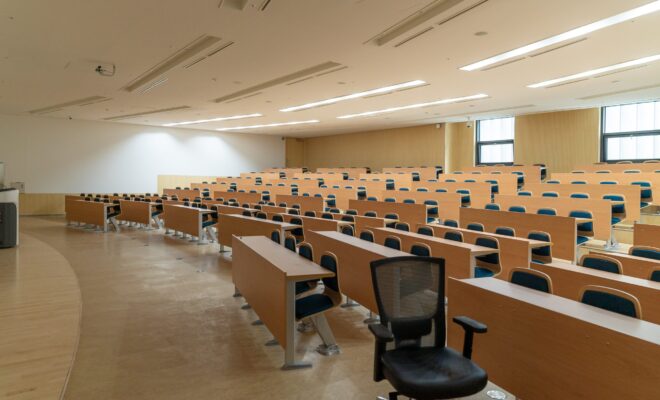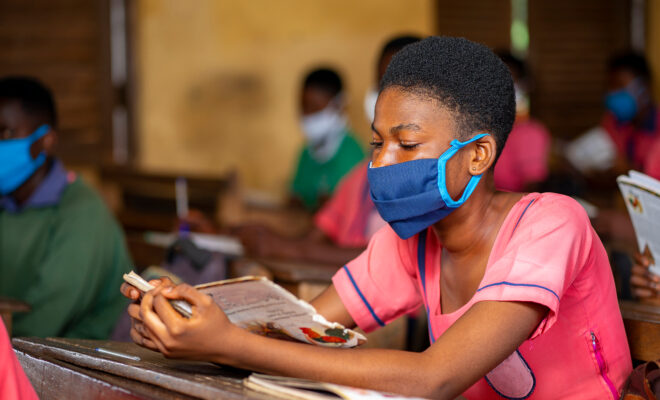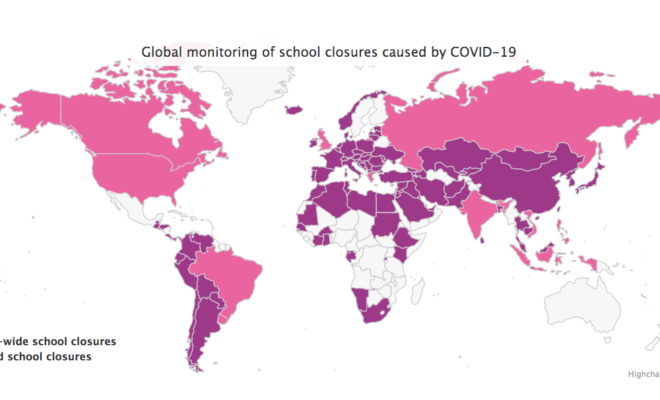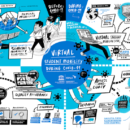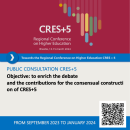IESALC report analyzes the impacts of #COVID19 and offers recommendations to governments and institutions of higher education
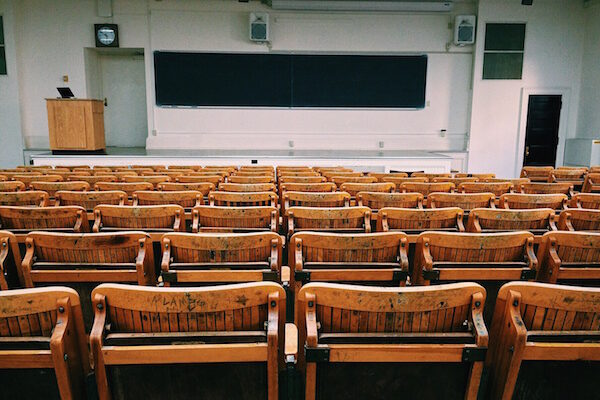
-
On World Health Day UNESCO launches document on higher education in the face of COVID-19
-
The temporary cessation of face-to-face activities of HEIs on a global scale has been a huge disruptor of their operations, impacting on their ability to remain active and their financial sustainability
- Students and staff have been affected by the indefinite closure of HEIs, without a clear sense of how long the cessation of activities will last.
- In the event of the cessation of face-to-face activities equivalent to a quarter or more, it is likely that there will be a shortage of demand in the short term and a spike where fees are low or non-existent.
- As we progressively exit from the crisis, governments should see higher education as integral to their economic and social recovery and HEIs should ensure continuity with equity.
The COVID-19 pandemic adds a further degree of complexity to higher education in Latin America and the Caribbean, which comes from facing unresolved challenges, such as growth without quality, inequities in access and achievement, and the progressive loss of public financing. This is demonstrated by the UNESCO International Institute for Higher Education in Latin America and the Caribbean, IESALC in its most recent work entitled COVID-19 and higher education: Today and tomorrow. Impact analysis, political responses and recommendations (IESALC, 2020), a continuously updated reference document for political decision-makers of higher education in the region amidst the disruption caused in the sector by COVID-19.
The Report begins with the immediate, medium and long-term impacts of the pandemic on the different actors in the sector: students have been forced to experience the unplanned dynamics of distance classes, which affects their daily lives, costs and their financial burdens as well as the continuity of their learning and international mobility. Those who have not had a quality teaching continuity offer and individualized follow-up, are likely to abandon the academic cycle with the increased risk of their leaving the system. In the case of Latin America and the Caribbean, entering a distance study phase requires a high degree of quality connectivity. However, only one in two homes is connected. “The paradox is that, despite the variability in connectivity in homes, the number of mobile lines is extremely high and, in many cases, is more than one per person. This is, without doubt, an opportunity that higher education institutions (HEIs) should take advantage of, and focus their efforts on technological solutions and content for use on mobile phones. “
The access of students to the technologies and platforms required for distance education (76%) and the real technological and pedagogical capacity of the institutions to offer quality online education (75%), leaves out 25% of students and institutions. Many authorities admit that “the change in modality was made in an unpredictable emergency situation and that they should, from now on, plan a next term in online teaching with greater pedagogical support and resources, anticipating that the duration of the crisis will go beyond a quarter.” “In this scenario, teachers constitute a vulnerable sector, particularly those hired temporarily or for practical subjects, since they run the risk of being unemployed due to the characteristics of their jobs. In addition, the digital divide threatens the stability of a majority that do not have the tools and resources to continue with classes in a virtual mode.”
In this critical environment, the financial sustainability of private HEIs comes into play: “Cash flows may cease, generating problems of financial survival. This may be critical for private universities that cannot guarantee virtual teaching continuity. It is likely that they will temporarily have to suspend the collection of fees and some may close. “
INSTITUTIONAL RESPONSE TO COVID-19
Institutional responses have focused on covering the health front, adjusting calendars, contributing from research and development to mitigate the pandemic, guaranteeing the continuity of training activities through distance education, and providing bibliographic and technological resources, as well as socio-emotional support to the university community. In other words, attending to the immediate emergency with a view to guaranteeing the well-being of citizens. In Argentina, Brazil, Colombia, Costa Rica, Honduras, Mexico and Uruguay, national universities have begun to provide services and produce goods needed to face the impact of the pandemic, for example, sanitizers, chinstraps and respirators, in addition to developing campaigns promoting prevention measures.
UNESCO RECOMMENDATIONS
The IESALC report recommends that all higher education actors prepare as soon as possible for the reopening of higher education institutions, which is likely to take place amidst economic recession with cuts in public investment in education. In light of this, UNESCO calls on States to ensure the right to higher education of all persons within a framework of equal opportunities and non-discrimination as a first priority, through regulatory frameworks, adequate financing and incentives, as well as the promotion of inclusive, relevant and quality initiatives to “leave no student behind”, in line with the main purpose of the United Nations Sustainable Development Goals. This involves attending to the pedagogical, economic and socio-emotional needs of those students experiencing greater difficulties in continuing their training in non-traditional modalities.
Governments and HEIs should create coordination mechanisms that allow progress to be made jointly in generating greater resilience in the higher education sector when faced with future crises. This requires governments: to include higher education in the stimulus plans for economic and social recovery; forge a national consensus for a strategy for fostering recovery and innovation in higher education; provide a clear regulatory environment for the reopening of classrooms that creates security; and commit to international cooperation.
The report recommends that HEIs anticipate a long-term suspension and focus on efforts to ensure training continuity and guarantee equity, implementing efficient governance, monitoring and support mechanisms; design pedagogical measures to evaluate progress and generate mechanisms to support learning among disadvantaged students; document the pedagogical changes introduced and their impacts; learn from mistakes and scale-up digitization, hybridization, and ubiquitous learning; as well as encourage internal reflection on a renewed teaching and learning model.
Access report COVID-19 and higher education: Today and tomorrow. Impact analysis, political responses and recommendations
RELATED ITEMS

